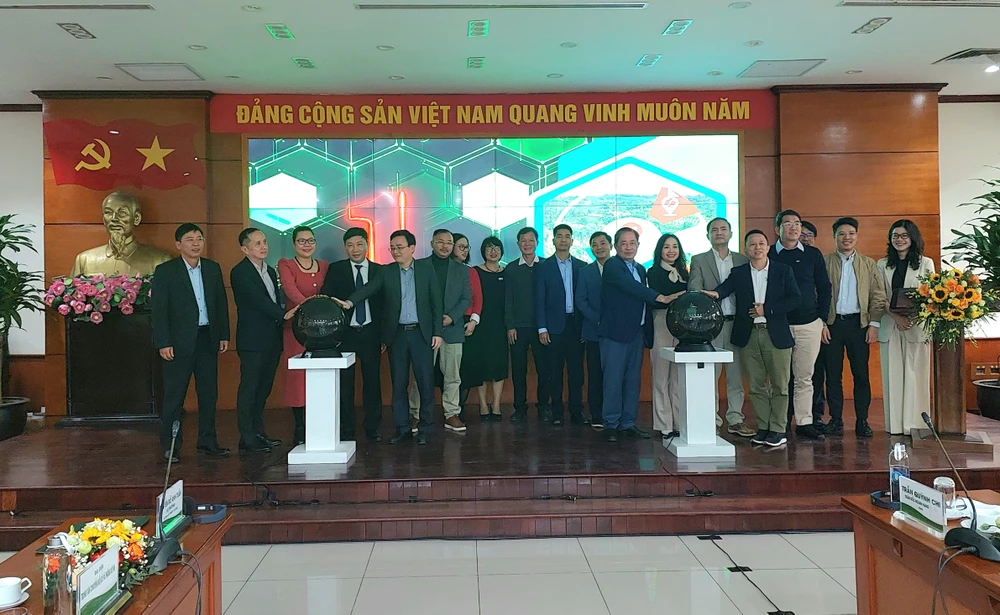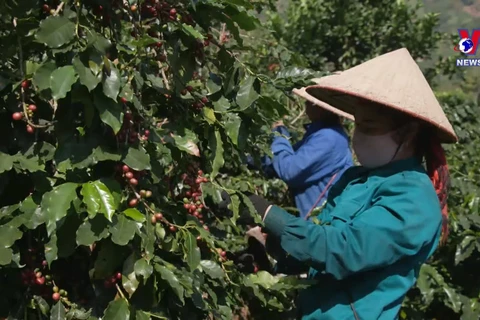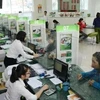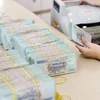
Hanoi (VNA) – The Vietnamese Ministry of Agriculture and Rural Development (MARD) and the Sustainable Trade Initiative (IDH) organisation of the Netherlands on December 17 co-organised the handover ceremony of the pilot results for the database system for forests and coffee-growing areas in compliance with the EU Deforestation Regulation (EUDR).
Nguyen Do Anh Tuan, head of the MARD’s International Cooperation Department, noted that the EU regulation, issued in June 2023, stipulates stringent requirements for transparency, traceability, and commitments to preventing deforestation and forest degradation within agricultural supply chains covering seven key sectors, including three of Vietnam’s major exports - coffee, timber, and rubber.
Compliance with the EUDR not only presents challenges but also offers opportunities for the sectors to enhance their credibility, value, and standing in the global market, he said, adding for the coffee sector, one of the key solutions for meeting the standards lies in developing a comprehensive, accurate, and transparent database on forests and coffee-growing areas.
Under the guidance of the ministry, with close collaboration from the Departments of Agriculture and Rural Development of the Central Highlands provinces of Dak Lak and Lam Dong, and technical and financial support from international organisations such as IDH, the pilot programme has successfully achieved its key objectives. Among these is the establishment of a forest and coffee-growing area database system that complies with the EU regulation in four pilot districts, according to the official.
This system serves as an effective tool to demonstrate to international partners that Vietnamese coffee is deforestation-free and meets the stringent EUDR requirements, he said, stressing it enhances the global competitiveness of Vietnamese coffee, solidifying its position in the international market.
Tuan said the system is also designed for expansion to other sectors like rubber, pepper, and durian, calling it a stepping stone to raise the efficiency of forest management and promote sustainable agriculture.
The ministry has issued a national action plan framework for adapting to the EUDR, outlining a clear roadmap with technical support components. The plan aims to help stakeholders across value chains prepare for compliance with the EU regulation while implementing effective measures to minimise risks ahead of the regulation's official enforcement.
The EUDR adaptation cooperation group, consisting of IDH, JDE Peet’s - a Dutch multinational coffee and tea company, and domestic and international coffee companies, has received approval from the MARD, as well as the People’s Committees of Dak Lak and Lam Dong provinces, to pilot technical support initiatives under a public-private partnership model.
Key activities include developing a forest and coffee-growing area database, establishing a traceability system for coffee products from farms to local collection agents, creating protocols for information exchange among value chain stakeholders, and supporting coffee farmers near forested areas.
From November 2023 to December 2024, IDH, in partnership with businesses in the group, has been developing a forest and coffee-growing area database system. Participating companies are granted access to the system, enabling them to retrieve and utilise data that meets EUDR requirements, thereby streamlining product traceability processes.
“The launch of the Database System for Forest and Coffee Growing Areas marks an important step toward EUDR compliance in Vietnam. The additional time proposed aims to ensure that industry sectors and global partners, such as Vietnam are fully prepared for the entry into application of the Regulation, facilitating a smooth and effective rollout. This opportunity should be seized to prepare, take concrete actions, and meet EUDR requirements effectively, paving the way for a sustainable future for Vietnam's coffee sector.” said Mara Grimminger, International Relations Assistant, Directorate General for the Environment, European Commission./.






















